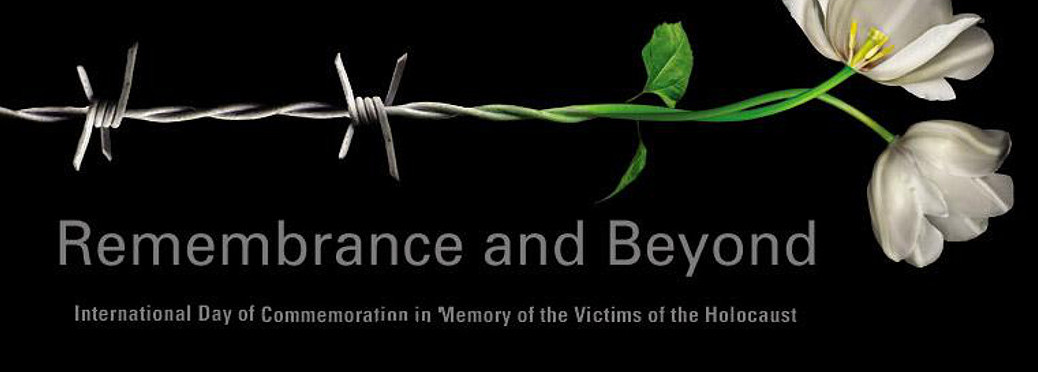Eagle Wings Charismatic Ministries International

Under Construction, updates daily

We are very happy to announce that our station is now running on Libretime version 3.0



We are very happy to announce that our station is now running on Libretime version 3.0

Our prayer is that as a reader you will be blessed.
It has been for over a decade since Eagle Wings Charismatic Ministries International (EWCMI) has been founded in Travis County Texas.
And over this time thousands of people have been reached through its sermons and radio messages.
From its conception, EWCMI has been a zero-dollar ministry. That what goes in, goes out for ministry and its tools, zero profits, all volunteers, and all for the love of Yeshua (Jesus).
The reach of a ministry like EWCMI is beyond our understanding, the Liberal extremists, Communist and Muslim controllers are not able to stop the message of the Love of Yeshua and the true liberation that He brings.
The question of why many conservative Christians, Messianic Jews, or traditional Jews distance themselves from contemporary television is a multifaceted one. It's easy to hastily conclude that such a choice leads to a retreat into an insular world, detached from reality. However, this perspective merits a more nuanced examination.
Reflecting on the political turmoil and character assassination prevalent in media over the past few years, one could argue that it is, in fact, television that often distorts reality. Whether it's news or entertainment, the content presented through various channels—be it social media platforms like Facebook and Twitter, or traditional TV networks—Whatever this might be it is not reality, it is a distortion of what is going on in the real world, it is a look at the world through this channels, reporters, organizations, pink, purple, red, or blue colored glasses. This distortion extends beyond just the news; it permeates all forms of televised content.

From a personal standpoint, agreeing with Rabbi Moss, one might find a deeper connection with reality when television is not a constant presence. Watching a movie or a show becomes a conscious choice, akin to selecting a book to read, rather than a passive consumption of whatever is broadcast. This approach allows for control over the content and timing of television viewing, avoiding the intrusion of overtly sexual or suggestive advertisements.
In essence, the decision to limit television consumption is about exercising control over one's media intake, ensuring that it doesn't overshadow real-life interactions and experiences. Enjoying a show like "Doctor Who" after a long day's work is a form of entertainment, but it's crucial to remember that it's just that—entertainment. It shouldn't replace the valuable time spent with family and friends or become a substitute for engaging with the real world. Life, after all, is meant to be lived fully, not merely in the intervals between commercial breaks.


Shavuotwith Information from

What Does The Word Shavuot Mean?“Shavuot” is the Hebrew word for “weeks.” The Torah tells us to count seven full weeks after the second day of Pasover to Shavuot. In ancient times, the Israelites were an agricultural people who brought sheaves of grain as gifts to the Temple for these seven weeks. On the fiftieth day, Shavuot, they brought loaves of bread made out of the new grain. The holiday is also called Hag HaBikkurim (Hebrew for Holiday of the First Fruit) as it marks the beginning of the fruit harvest when the first ripe fruits were brought to the Temple as an offering of thanksgiving. What Does The Holiday Of Shavuot Celebrate?Seven weeks after the Hebrew slaves left Egypt— seven weeks after Passover— the Israelites were transformed into the Jewish people when they received the Torah at Mt. Sinai. The tradition tells us that everyone who is a Jew today stood at the mountain with the children of Israel— and the “strangers in the camp” were there too (Deuteronomy 29:9-14).
How Was The Torah Created?The tradition tells us we received the Torah, the Five Books of Moses, at Mt. Sinai. In Exodus and Deuteronomy, there are several different versions of what happened. The sages have interpreted the different version in several ways:
Whichever interpretation(s) you believe, all agree that it was a unique spiritual experience. No matter what happened back then, we do know one thing. Somewhere, sometime, something occurred that was so awe-inspiring that a people was born, their belief system founded on the principle that they are holy, connected to one another and to the Source— whatever that may be— that conferred meaning on them and on life everywhere. And in response to that discovery, the Jews pledged themselves, individually and collectively, to join their will to God’s and to seek to increase holiness in the world. [Rabbi Nina Beth Cardin, The Tapestry of Jewish Time: A Spiritual Guide to Holidays and Life-Cycle Events.]
How is Shavuot Celebrated?Shavuot begins at sundown with a holiday meal which includes blessings for candles, the holiday kiddush (blessing over the wine) and shehechiyanu (prayer of gratitude for reaching this day). Because the Torah mentions the offering of two loaves of bread made from new grain, it is a custom to have two loaves of bread on the table. Some people bake two loaves of challah side-by-side, leaving them connected so they look like the two tablets of the commandments. It is customary to eat a dairy meal at least once during Shavuot. One reason is that it is a reminder of the promise that Israel would be a land flowing with “milk and honey.” Another reason might be because the Israelites abstained from eating meat as part of their purification before receiving the Torah. No one really knows how this tradition started, but it is a good excuse to indulge in dairy delicacies. Rice pudding and cheese-filled filo are common dishes in the Sephardic (Mediterranean) Jewish communities. Jews of Kurdistan prepare a dish with ground wheat cooked in sour milk and butter that is served with dumplings. In Triploi, women bake wafers in the shape of a ladder that helped Moses to the top of Mt. Sinai or in the shape of the tablets. Ashkenazi (European) Jews eat cheese filled crepes called blintzes and bake cheesecakes. In the medieval period, mystics from Safed studied all night in preparation for the opening of heaven at midnight. They believed they would hear the echo of the giving of the Torah. Some synagogues emulate this tradition with all-night study sessions, taking turns reading from the Torah and teaching each other until dawn. This ritual is called tikkun leil Shavuot (literally “healing for Shavuot night,” it is known as a “night of learning [for Shavuot]”). Families can replicate this custom and make Shavuot a time when children are allowed to stay up late reading bible stories or watching movies with biblical themes while enjoying dairy snacks. What is added to the regular synagogue service? Hallel, a collection of verses from Psalms, is traditionally chanted on all festivals. Before the Torah portion of the week, which includes the reading of the Ten Commandments, the Book of Ruth is read.
Names for ShavuotBecause it is a multifaceted holiday, Shavuot is given different names in the Scriptures and in the Jewish tradition: Chag Shavuot (“The Festival of Weeks”); the Hebrew word sheva means seven, shavu’ah means week, and Shavuot means weeks. Exodus 34:22; Deut. 16:10 Chag Hakatzir (“The festival of the Harvest) Exodus 23:16 Yom Habikkurim (“The Day of First Fruits”) Num. 28:26 (not to be confused with the festival of First Fruits (Lev. 23:9-12). Bikkurei Ketzir Chittim (“The first fruits of the wheat”) Exodus 34:22 Yom HaKahal (“The Day of Assembly”) Deut. 18:16 Z’man Mattan Torateinu “The season of the giving of the Torah” Anticipating RevelationThe two-month wait is nearly over now, and we anticipate a time to recommit our lives to the LORD God of Israel. On Shavuot Jews are commanded to remember the revelation given at Sinai (Deut. 4:9) and to spiritually reenact kabbalat ha-Torah (the receiving of the Torah). This is symbolic of a wedding day, when God betrothed Israel as His own people, separate from all others. The goal of Passover redemption was to set us free to become God’s own treasured people (am segulah), a light to the nations: ambassadors for Heaven’s voice... According to some of the sages, the entire Jewish nation will one day be saved from their spiritual exile on Shavuot. As Messianic Jews and gentiles alike, we understand that our Passover redemption was designed by God to set us free to become appointed heirs (κληρονομοι) with Yeshua (Jesus) and to identify with His redemptive purposes in the earth (Rom. 8:17, Titus 3:7, etc.). By God’s chesed we are now called God’s own treasured people (am segulah), a light to the nations: ambassadors for the Kingdom of God (1 Peter 2:9). We have been saved from or spiritual exile when the Ruach Ha-Kodesh (Holy Spirit) was given to us (Acts2). Exodus 14 – 17, RuthCollectively, the followers of Yeshua are called kallat Mashiach - the bride of the Messiah (2 Cor. 11:2, Rom. 7:4, Eph. 5:25-27, Rev. 21:9, 22:17). Presently we are living during a betrothal period in which the bride and groom are separated until the wedding. Our responsibility during this age is to be faithful to our Heavenly Bridegroom (2 Cor. 11:2; Eph. 5:24). When Yeshua returns, we will finally be united with Him and the glorious "wedding ceremony" will take place (Rev. 19:7-9; 21:1-2).
|
Yom Hashoahwith Information from
Not a Biblical Holiday but in the light of all Jewish and Christian Persecution one time to stand still with all that has past and learn from history and see what is truly going on in this world.

Establishment of the HolidayThe full name of the day commemorating the victims of the Holocaust is “Yom Hashoah Ve-Hagevurah”— in Hebrew literally translated as the "Day of (remembrance of) the Holocaust and the Heroism." It is marked on the 27th day in the month of Nisan — a week after the end of the Passover holiday and a week before Yom Hazikaron (Memorial Day for Israel's fallen soldiers). It marks the anniversary of the Warsaw Ghetto uprising. The date was selected in a resolution passed by Israel's Parliament, the Knesset, on April 12, 1951. Although the date was established by the Israeli government, it has become a day commemorated by Jewish communities and individuals worldwide. The day's official name - Holocaust and Heorism Remembrance Day - was made formal in a law enacted by the Knesset on August 19, 1953; on March 4, 1959, the Knesset passed another law which determined that tribute to victims of the Holocaust and ghetto uprisings be paid in public observances. While Yom Hashoah rituals are still in flux there is no question that this day holds great meaning for Jews and those that love Israel and God's chosen people worldwide. The overwhelming theme that runs through all observances is the importance of remembering — recalling the victims of this catastrophe, and insuring that such a tragedy never happen again. The Shoah (Holocaust) posed an enormous challenge to Judaism and raised many questions: Can one be a believing Jew after the Holocaust? Where was God? How can one have faith in humanity? Facing this recent event in history, does it really matter if one practices Judaism? Jewish theologians and laity have struggled with these questions for decades. The very fact that Jews still identify Jewishly, practice their religion — and have embraced the observance of Yom Hashoah answers some of the questions raised by the Holocaust.The importance of Remembering
Memory Has Brought Us This FarIt is memory that has allowed us to last through thousands of years of history. Our religion and our people are founded on the collective memory of revelation at Sinai. Scripture throughout commands us to remember: Remember the Sabbath day (Exodus 20:8), observe the Sabbath as a reminder of the Creation (Exodus 20:11) and of the Exodus (Deuteronomy 5:15); remember, continually, the Exodus; remember what the evil Amalek did All those memories define us and help us keep focused on the goal of our national mission. As the Baal Shem Tov (the founder of [Hasidism]) taught, “Forgetfulness leads to exile while remembrance is the secret of redemption,” words that appropriately guard your exit from the history museum at Yad Vashem in Jerusalem. The wall above the eternal flame in the Hall of Remembrance of the United States Holocaust Memorial Museum in Washington, DC also invokes memory. “Only guard yourself and guard your soul carefully, lest you forget the things your eyes saw and lest these things depart your heart all the days of your life. And you shall make them known to your children and to your children’s children” (Deuteronomy 4:9). Memory as a Positive ForceThe biblical citation etched into that wall, while an apt admonition in the face of Auschwitz, is out of context. What the original usage enjoins us never to forget is the experience at Mount Sinai and the laws given to us there, the positive context for purposeful living.
We cannot raise our children to be healthy, constructive Jews by cowering them with expectations that the anti-Semitic world will force Jewish identification on them. Being Jewish mainly because the Holocaust happened or because anti-Semitism continues is not sufficient reason to hang on to a culture. The Jews who maintained their heritage for thousands of years did so not because they were surrounded by rabid anti-Semitism. (Until Hitler’s demonic program, they always had the option to abandon Judaism for another belief system.) They did so because their way of life had value. Memory and Jewish RenewalWhile you are teaching your children about this painful period, remember to teach them that: Don’t talk only about the destruction but about what was destroyed: the rich culture, the intellectual accomplishments, the colorful tradition that was Eastern European Jewish life. Our heritage, our unique value system, our contributions to the world are what we must remember along with our troubled history. These are the memories that will prompt us to effectively engage in the revitalization of Jewish life. The question each of us must ask is “How will I participate in Jewish renewal?” It may be through your children: raising them to be informed, identified Jews. (One suggested response to the tremendous loss of Jewish life is that each family have one more child than it had planned, to replenish the population, and its potential progeny, cut down by Hitler.) Strengthening the community by supporting–with money and volunteer efforts–the institutions devoted to promoting Jewish life (physical, spiritual, emotional, and intellectual) is a widespread response. Helping ensure that Israel continues to grow and progress so there will always be a safe haven for Jews is of utmost importance. Memory, Creativity and LearningIf you are creative, produce art, literature, music, dance, or film on Jewish themes. Whether or not you are creative, read Jewish books, visit Jewish museums, attend Jewish programs, subscribe to Jewish periodicals. And, most of all, learn. Learning has always been a cornerstone of Jewish continuity and renewal. In biblical days, the Israelites emerged from periods of idolatry, devastation, and exile by returning to Torah–reading it, trying to understand and live by it. [In modern times, ] from the ashes of the respected European yeshivot [academies] destroyed in the 1940’s have arisen new Jewish academies and other educational programs in Israel and in America (many of them supported by funds from Jews who are not themselves particularly tradition-minded or Jewishly well educated). Day school, supplemental, family, and adult education programs are continually being expanded. Make sure your children have access to formal Jewish education (don’t overlook a good Jewish youth group or summer camp), and take advantage of learning opportunities yourself (don’t overlook the possibility of organizing or attending a study group in someone’s home). All of these acts, while honoring the memory of the generations that preceded us, will create positive new memories and strong new Jewish realities for the generations that follow.
|
Page 1 of 4